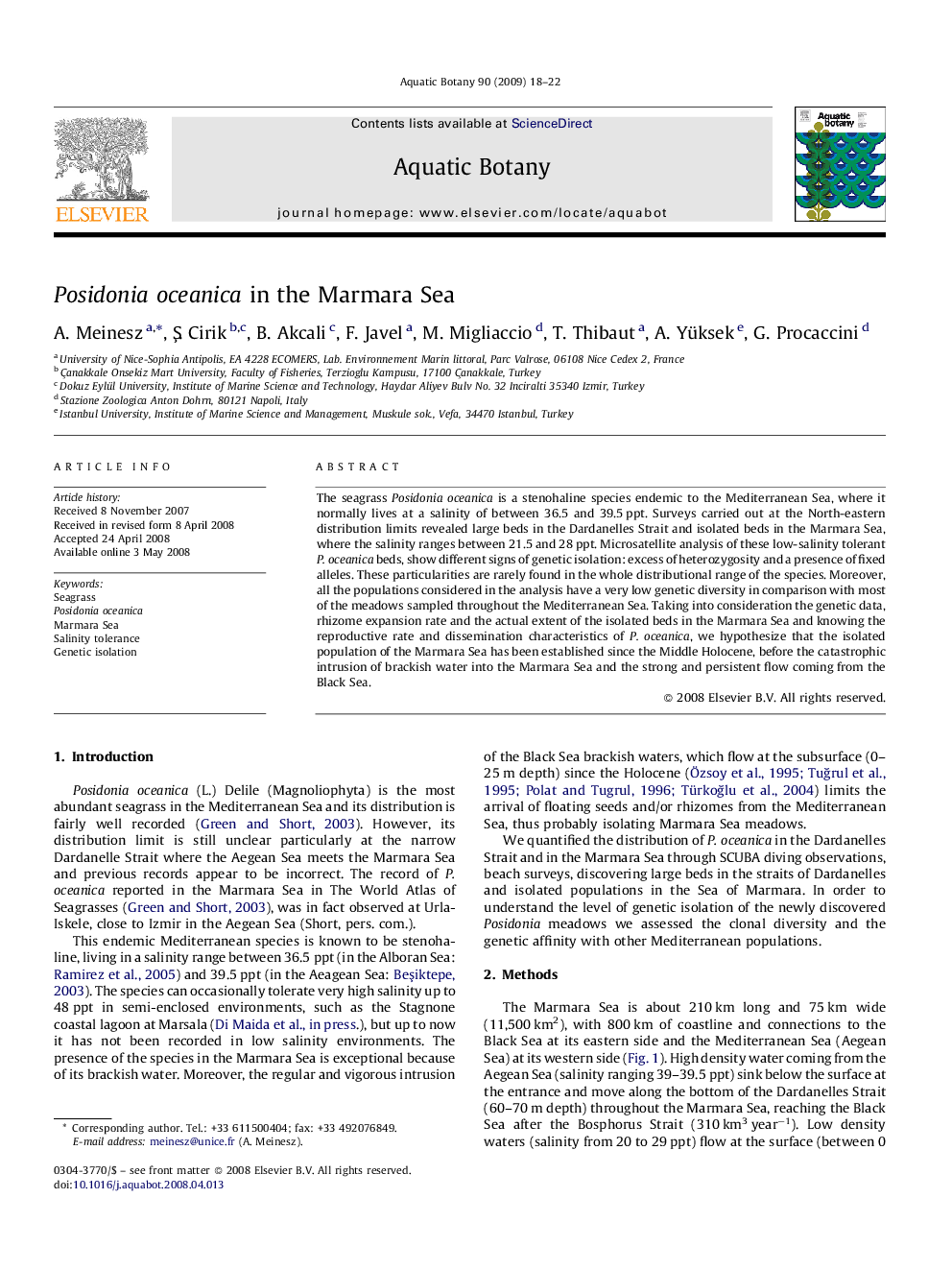| کد مقاله | کد نشریه | سال انتشار | مقاله انگلیسی | نسخه تمام متن |
|---|---|---|---|---|
| 4528398 | 1324305 | 2009 | 5 صفحه PDF | دانلود رایگان |

The seagrass Posidonia oceanica is a stenohaline species endemic to the Mediterranean Sea, where it normally lives at a salinity of between 36.5 and 39.5 ppt. Surveys carried out at the North-eastern distribution limits revealed large beds in the Dardanelles Strait and isolated beds in the Marmara Sea, where the salinity ranges between 21.5 and 28 ppt. Microsatellite analysis of these low-salinity tolerant P. oceanica beds, show different signs of genetic isolation: excess of heterozygosity and a presence of fixed alleles. These particularities are rarely found in the whole distributional range of the species. Moreover, all the populations considered in the analysis have a very low genetic diversity in comparison with most of the meadows sampled throughout the Mediterranean Sea. Taking into consideration the genetic data, rhizome expansion rate and the actual extent of the isolated beds in the Marmara Sea and knowing the reproductive rate and dissemination characteristics of P. oceanica, we hypothesize that the isolated population of the Marmara Sea has been established since the Middle Holocene, before the catastrophic intrusion of brackish water into the Marmara Sea and the strong and persistent flow coming from the Black Sea.
Journal: Aquatic Botany - Volume 90, Issue 1, January 2009, Pages 18–22